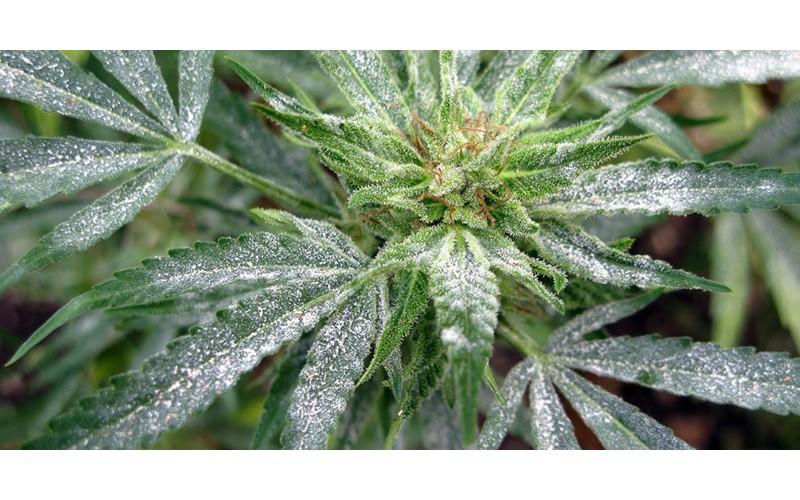What is powdery mildew?
Powdery mildew is a common fungal disease that affects many plants, including roses, grapes, some types of fruit trees, and cannabis. Powdery mildew diseases are caused by different species of fungi in the order Erysiphales, with Podosphaera xanthii being the most common cause. There are variations of the powdery growth that thrives on leaves, buds, young shoots, fruits, and flowers. It’s spread when the fungus releases spores in the spring and can remain dormant until conditions are ideal for it to grow and spread, sometimes years later.
How to treat and prevent powdery mildew.
If you’re dealing with a current outbreak, UV Clean Light has been proven effective against many powdery mildews but requires a particular bulb. Several other organic treatments, including copper-based fungicides, baking soda solutions, neem oil, garlic, compost tea, apple cider vinegar, hydrogen peroxide, and milk, can be effective. It’s essential to irradiate the mildew completely. Remove infected plants quickly to prevent losing an entire crop.
To prevent the spread of powdery mildew, creating a multi-faceted approach is crucial. Here are some tips on preventing the spread of mildew.
Air Purification/circulation – Using an air purification system will help keep spores from spreading. Increasing circulation is also an effective way to prevent the mildew from growing. Poor circulation contributes to many problems, so increasing circulation will be beneficial.
Light – Powdery mildew prefers shade, so making sure your plants are getting the maximum amount of light should aid in keeping any spores from growing. Just make sure they’re not getting too much light. For more information on how to know when plants get too much light, check out this blog.
Limit fertilizers – Because fertilizers encourage natural growth, it’s essential to ensure you’re not providing the means for the powdery mildew to grow. Slow-release fertilizers or liquid nutrients in hydroponics systems that keep it away from leaves and shoots are preferred.
Overcrowding – Give your plants plenty of space to grow. If plants are overcrowded, it allows spores to spread faster. An entire infestation can be costly, so make sure you give your plants plenty of room without wasting valuable space.
Final thoughts
Most approaches to pests and disease prevention require research and customization. Every grow is different, and the approach to prevent or treat infestations should deal with your specific circumstances.
Happy growing!
The NSB TEAM


